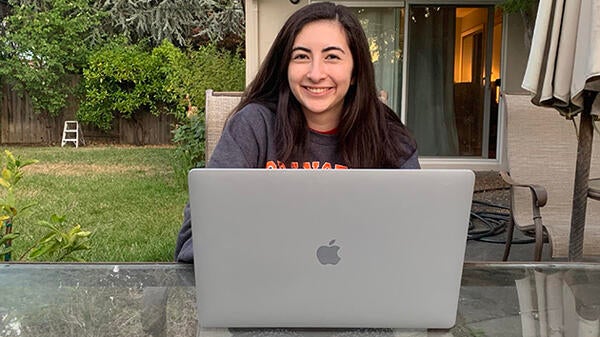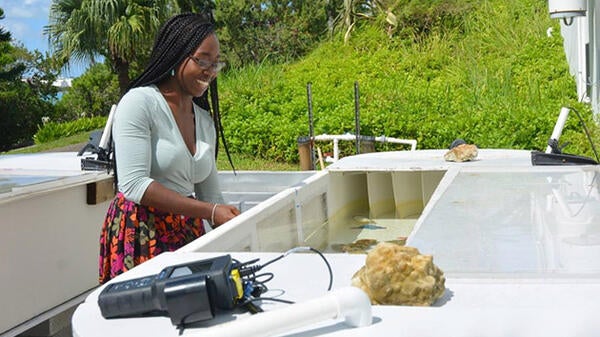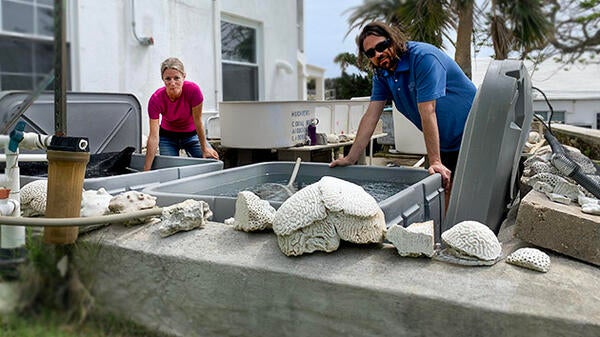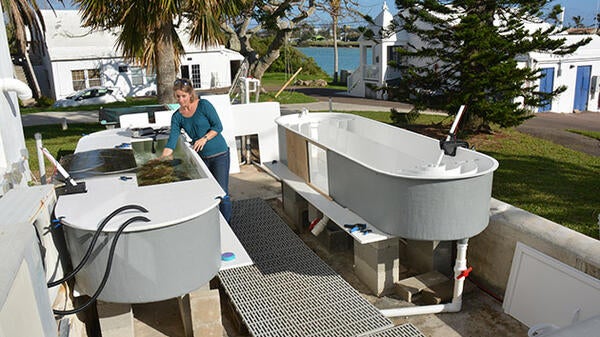When scientists study coral reefs, they are often interested in figuring out key components of reef health; specifically, primary production—or photosynthesis—and calcification, the rate at which new reef growth occurs. For decades this has meant time and labor-intensive fieldwork, with scientists documenting global reef condition and linking what they see underwater with lab-based experiments and measurements.
A New Frontier in Science Teaching and Learning
August 31, 2020

The ongoing COVID-19 pandemic forced BIOS, as well as many other research and education institutions around the world, to suspend on-site experiential learning activities, including multiple university-level summer internships. However, due to a unique alignment of circumstances, including both the proposed research project and the intern’s skill-set and technical expertise, BIOS was able to offer the Princeton Environmental Institute (PEI) Internship remotely this year.
A Fruitful Partnership
June 30, 2020

In summer 2018, undergraduate student Moronke Harris came to BIOS from the University of Guelph in Ontario, Canada to pursue what had been a years-long ambition: oceanographic research. Through a Canadian Associates of BIOS (CABIOS) internship, she spent three months engaged in a geo-engineering project seeking potential solutions for coral reef bleaching.
A New Approach to Quantifying the Metabolic Rates of Coral
May 28, 2020

BIOS assistant scientist Yvonne Sawall and research specialist Tim Noyes were chosen in early 2020 from among five applicants to receive funding from the Cawthorn Innovation Award for a project designed to advance understanding of the metabolic rates of corals and other reef organisms. The award was established in 2016 by trustee emeritus Rob Cawthorn to support innovative and challenging research ideas among scientists at BIOS.
